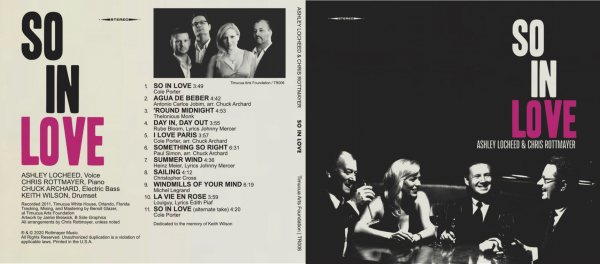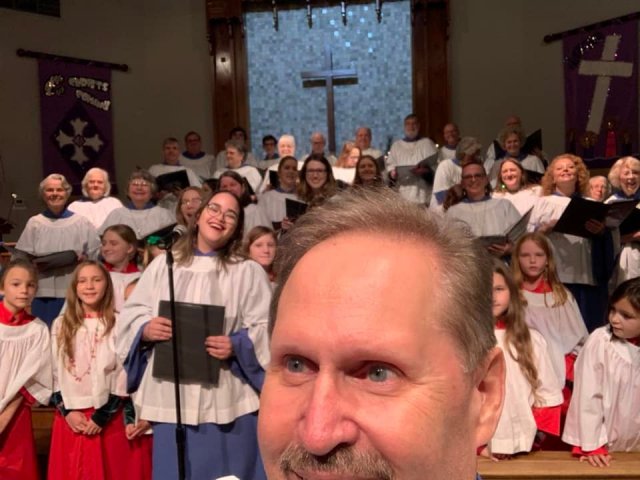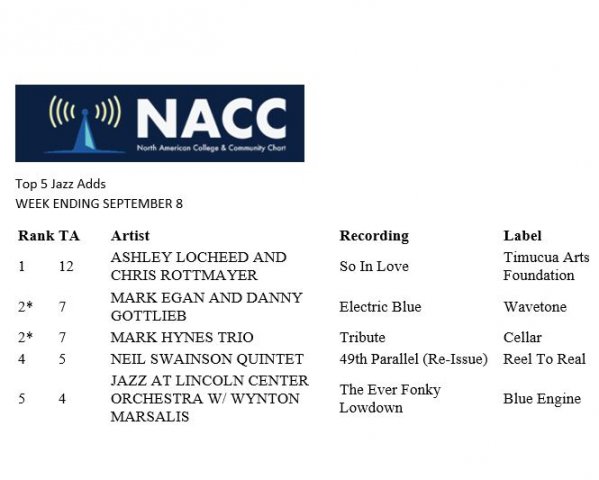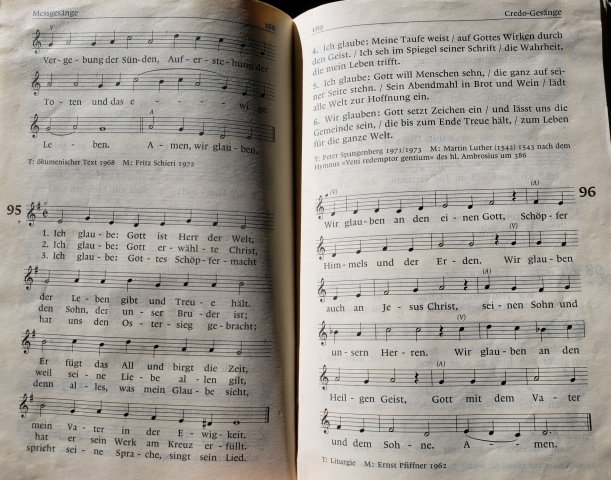I'm not with my choir at the moment but that doesn't mean I'm not thinking of them. Here's a treat for all singers of John Rutter—those who love his music and even some of those who don't.
So you don't have to look in the comments, here is the text:
Can you believe it?
This is not Rutter.
It sounds a bit like his style of writing songs.
I can believe it.
This is not Rutter.
It sounds a bit similar, but something's gone all wrong.
Here's the chorus; it's often melodic.
This is the style but less harmonic.
Shame we can't give you a better lyric, but there you go.
That was a key change, made to suit our range,
or we would sound strange, though no-one knows why.
There was another (another key),
but it's no bother:
we can sing every note and even way up high.
Here's the chorus;
the tune's in soprano.
Sometimes it's sung without the piano.
No staccato no rubato, vibrato,
so there you go (go).
Oooh, sing out your oohs now.
Sing out your ahs now.
Ooh, sing out your ahs and ooh and ah and ooh.
There must be another bit where we are so articulate,
and we utter it, not mutter it,
or splutter it or Rutter it.
Here's the last chorus; the final climax.
Now quite familiar but has some drawbacks.
If sung too loudly this is where your voice cracks,
just at the end.
Amen.
We interrupt the story of our trip to Chicago to bring you something as beautiful as it is heartbreaking.
S. D. Smith, author of the Green Ember books, wrote:
I’m never sure what to say when world events are so intense and the words of an ordinary children’s author from West Virginia on social media feel so unnecessary. “Stay in your lane,” I tell myself. ... So, while ordinary men kissed their wives and children and turned to fight to protect their homeland from invasion, I wrote. I wrote thousands and thousands of words—in private—on a story that I’ve been working on for many months with my son. I kept at it while a new war in Europe intensified and drew the attention of the world. ... Though it feels relatively unimportant, I think creating and sharing soul-forming stories is of great long-term value. My lane is an avenue that goes straight through the hearts of children God made and loves and intends for his kingdom of light. No small thing. It’s a good little lane. So I write on.
Composing choral anthems is John Rutter's "good little lane." It's no surprise that his response to the tragedy in the Ukraine was to write music. He has made his A Ukrainian Prayer available to choral directors for free, with the suggestion that they make a donation to a relief organization serving the Ukrainian people.
Our choir sang it in church today. Based on the comments we received afterwards, the congregation appreciated both Rutter's music and the fact that we sang it at this time. I'll admit that both the alto and the tenor parts were weaker at the beginning than they had been in rehearsal, due to the fact that the two of us were unexpectedly hit in the emotional solar plexus as we started to sing—and I'm told we weren't the only ones.
Here's not-our-choir, with Rutter conducting. The video starts at the beginning of the piece, but if you want you can go back to the beginning and hear Rutter's commentary. This is sung in Ukrainian; the literal translation is "Lord, protect Ukraine. Give us strength, faith, and hope, our Father. Amen." Our choir sang the English version.
As our own choir director said, "It's not every musician who can just round up 300 of his closest friends to try out his composition."
Bonus for those who know: See if you can spot the point where I did a double-take and discovered our grandson's secret life as an English chorister.
In the second week of Advent, my true love gave to me:
- Five days of company
- Four choir rehearsals
- Three restaurant meals
- Two Christmas parties
- And a service of Lessons and Carols.
It was fantastic—and today I slept all afternoon.
We now resume our regular life. (Hah!)
I LOVE the Independence Day parade and festivities in Geneva, Florida. I've written about it many times. We were small in numbers this year, but infinitely bigger than in 2020, when there was nothing at all. Thanks to Liz, our organizer and director-by-necessity, and to the good people of Geneva, marching in the parade was still a blast. The event organizers tell us that our antics are "one of the most frustrating things, and yet one of the things that the parade goers enjoy the most."
Thanks to the fact that the Fourth was a Sunday this year, Geneva's party was held a day early. And the federal holiday is a day late, so we enjoyed three days of festivities. Less happily, our neighbors have been making it a week-long holiday with their fireworks. It's a good thing the drought has broken.
The best part of the parade is interacting with the crowd, and hamming it up with my cymbals as we march along. Porter does the same with the water wagon (and its following shark). All it takes is a willingness to leave all pride and self-respect behind as the parade steps off.
I'll have to admit that the cymbals get heavier with every year, and running to catch up with the band—after letting a small spectator "help me out" by banging the cymbals—now leaves me a bit winded. It's a good thing Porter (aka Gunga Dad) is always ready with a drink to keep me hydrated!
The people of Geneva are always so warm, friendly, and encouraging. They love our country, their heritage, and their band. We didn't start in Geneva; 30 years ago we were the World's Worst Marching Band and played gigs not only in Central Florida but as far away as Atlanta and Philadelphia. Geneva at its worst couldn't outdo the heat of Atlanta's Independence Day parade, when Peachtree Street's pavement melted under our feet and (thanks to Gunga Dad) we were the only band not to have someone faint. But when the World's Worst Marching Band put itself out to pasture many years ago, Geneva welcomed us as their own.
One of the exhibits we checked out this year was a travelling exhibition of artwork created using wood from The Senator, our much-beloved and long-lamented bald cypress, which was the oldest in the world when it was destroyed by a careless drug user in 2012. I was expecting something tacky and touristy ("Get your gen-u-wine Senator key ring here!") but it was nothing of the sort. Rather, it was moving and respectful, telling the story of the tree and displaying beauty from ashes through art.
It has been a hard year with singing in church choir forbidden. I think that decision was a huge mistake, but our leaders are flying by the seat of their pants here and I'm not going to argue about it now. They're all doing what they think best, even if I disagree with it. But it has certainly been a great loss.
At times like this it is lovely to be part of a family large enough to include all voice parts. In December we were blessed to have a hymn fest with one set of grandchildren, and in April with the other. Call it our Christmas and Easter Festival Celebrations.
Of course we had to include our family anthem: St. Patrick's Breastplate. Nine verses, including two rarely sung these days. (Only a small excerpt here.) Glory, glory, hallelujah!
Maybe you never wanted to be a rock star. Maybe you don't care much for that music and the genres it spawned. Maybe you aren't interested in a career in the music world at all.
No matter: In the first 22 minutes of this video, Rick Beato has a story to tell you, and some good advice for us all. More of his interesting personal story is told in other videos on his Everything Music channel, but this summarizes his journey and how he faced the obstacles he encountered, including being rejected twice when he applied to music school. He rambles a bit, but it's a good story.
Next up in this series of interesting YouTube channel subscriptions: Everything Music, by Rick Beato. I was going to say that I can't remember what introduced me to to Rick Beato's channel, but a look back at one of my own posts gave me the answer: Google apparently decided I would be interested in it, popping up a suggested video on my phone. For once they were right.
My gateway to Beato's channel was the musical abilities of his young son, Dylan. There are several Dylan videos, but this one is a good 13-minute compilation:
It turns out that the Dylan videos are but a small part of Everything Music. Beato covers so much; I'll let him give the intro (13 minutes).
Music theory, film music, modal scales, tales from his own interesting musical history, and a whole lot of modern music about which I know little and like less.
Remember what I said about Excellence and Enthusiasm?
I'm a child of the 60's, chronologically, but unlike most of my generation, I've never liked rock music, nor any of its relatives and derivatives. Granted, growing up when I did there was no getting away from it, and there were a few specific songs I did enjoy. At one point, I was even a minor fan of Jefferson Airplane, and attended one of their wild, live concerts. That point in my life, while embarrassing, reminds me of this line from C. S. Lewis' Screwtape Letters: "I have known a human defended from strong temptations to social ambition by a still stronger taste for tripe and onions." Who knows what trouble I might have gotten into in my college years had I not had a stronger taste for what is loosely called classical music?
What, specifically, don't I like about the rock genre(s)?
- The music is almost invariably played at ear-splitting volume, literally ear-damaging.
- Most of the music comes with lyrics, and with a few exceptions, I find that they range from boring to abominable.
- The heavy emphasis on pounding rhythms drives me crazy; I never have liked playing with a metronome.
- The timbre of the electric guitar, nearly ubiquitous in rock music, is one of a very few that I generally find unpleasant (saxophone is another).
Enter Rick Beato. If his son's abilities are astounding, Rick's aren't all that far behind, and his experience, knowledge, and enthusiasm keep me interested in his analysis even though most of his examples are from music I can't stand. It helps a lot that he uses short excerpts, in which neither lyrics nor pounding beats have a chance to do much harm. Plus, I control the volume.
I especially enjoy Rick's videos on modal music, as that has always interested my ear. It does seem really odd to hear him talk about modes without any reference to church music, in which modal music was once really big. But I had no idea how important modes are in rock music and film scoring, and learning through Rick's videos has been a delight. Hiding underneath all that raucous sound and those objectionable lyrics is a lot of complex and very interesting music. It's not going to make me a rock music fan, but it gives me more appreciation for the skill of the musicians behind it—if not for their sometimes questionable moral compasses. (I know, classical composers were not necessarily saints, either. There's a reason I generally prefer instrumental music.) It has also heightened my awareness of the music that undergirds our movies and television shows, and why it is often so powerful.
Here's an interesting Gustav Holtz/John Williams comparison from one of his movie music videos (16 minutes):
That's enough for an introduction; I'm sure I'll be posting more Everything Music videos in the future.
Permalink | Read 2169 times | Comments (0)
Category Reviews: [first] [previous] [next] [newest] Education: [first] [previous] [next] [newest] Music: [first] [previous] [next] [newest] Inspiration: [first] [previous] [next] [newest] YouTube Channel Discoveries: [first] [next] [newest]
 So In Love by Ashley Locheed and Chris Rottmayer (Timucua Arts Foundation 2020)
So In Love by Ashley Locheed and Chris Rottmayer (Timucua Arts Foundation 2020)
At this time in our country, rejoicing with those who rejoice and weeping with those who weep has left me an exhausted mess. Enter: music. I needed a non-political post and this is just the thing.
We've known Ashley for nearly 30 years, and her voice is as beautiful as ever.
I downloaded her album from Amazon. For the physical CD the price (at the moment) is better from her website. I'm told the album is also available on iTunes and other places I don't bother with.
You don't have to take my word for the quality of Ashley's singing. Here, here, here, and here are some reviews. And then there's this:
Congratulations, Ashley and Chris!
When visiting Rome, we prayed in far more churches that I can possibly remember, from the incredible St. Peter's Basilica in the Vatican, to the personal chapel of the popes at the Scala Sancta, to the little churches everywhere on the streets of Rome, each filled with museum-worthy artwork.
But we only attended two services on our trip, both in Switzerland, both official state churches, one Reformed and one Catholic. The way I figure it: on average, we were Anglican.
The first church was just about what you'd expect from a Reformed church: a pulpit, a cross, an organ, and some chairs. Scripture, a long sermon, and a little music (no choir). I'm told there's sometimes more music than we experienced. Of course it was all in German, but it's amazing how much you can understand of Scripture readings if you know the Bible well enough, and we even figured out a tiny bit of the sermon. Singing in German is almost easy if you (1) have the words and the music, and (2) know even a very little bit about German pronunciation.
Our second service was Catholic, and it's not really a fair comparison, because it was a special day for the church, a celebration of the saint for whom it is named. Therefore the music was special, and included the choir, which doesn't always sing for the services. (That's not all bad, as it allows Stephan to sing in the choir and still attend most of his usual church's services.) It's a modern building, but not nearly as bare as the Reformed church.
Once again, we could pick up a little bit of the Bible readings and the sermon, but of course it was mostly lost on us. On the other hand, if only we had been provided with a written transcript of the liturgy, we could have participated in most of it and known exactly what was going on, even if we didn't understand most of the German. It was recognizably very much like our Episcopal (Anglican) service. (To be fair, the Catholics would say the Anglican service is very much like theirs.) At one point, Janet leaned over and asked, "Do you say this at your church?" referring to a part of the liturgy not used in the Episcopal churches of her experience. "We do now," I replied (thanks to our current priest). I could tell you what the priest and people were saying, but I couldn't join in without the German words to read.
Here's one fun hymn (#95) we sang, fun for me because I knew the tune as that of The Glory of These Forty Days. Close enough, anyway. (Click on the image to enlarge.) Note that the Catholic hymnal attributes the music to Martin Luther, while Hymnary.org to Johann Sebastian Bach. It actually is Martin Luther's music, but Bach did base a famous cantata on it.
Jessye Norman has taken her voice to a higher choir. In memoriam I offer two versions of one of my favorite choir anthems, Donald Fraser's This Christmastide, a.k.a. Jessye's Carol.
With Ms. Norman herself:
and with the American Boy Choir. Our choir sang this back in the late 1990's, and the memory still moves me. I find it almost as powerful to listen to as to sing.
While praying and working with Dorian taking aim right at us, it is impossible to resist some musical jokes about current events. Dorian is my favorite musical mode—I hope I still like it a week from now.
and
Enjoy! Now back to work....
The contrast between our children's high school music experience and our New Hampshire grandchildren's couldn't be greater. The band/chorus/school sizes differ by almost a factor of 10.
If I had to choose one over the other, I don't know which I would prefer. At first glance, I'd have gone with the larger programs hands down. Our Central Florida school opportunites are amazing, with music and theater performances (and equipment/resources) of near-professional quality. Plus the area also has magnet schools and private schools dedicated to the performing arts. The opportunities for serious students of the arts are wonderful here. Not perfect—when we were directly involved, the flaws were obvious—but further experience has shown me how much better off we were than many other places.
But what if you just want to have fun? Or even if you're dedicated to your art, is it better to be in the middle of a great talent pool, or at the top of a small one? I don't think there's an easy answer.
But one thing I do know: One advantage of small town schools is that they're more likely to be flexible, e.g. allowing a fifth grader to be in the seventh grade band, and another student to play in both the middle school and the high school bands. (The elementary, middle, and high schools are all on the same small campus, making the latter possible.)
More to the point of this post, there's room in the spring concert schedule to add a blessing for your grandmother when she makes the 1300-mile journey to hear you play and sing.
This was a total surprise.
Earlier in the year, Jonathan had transcribed Seminole Wind, which I love, from a YouTube video, got together with some of his friends, and arranged it for the group. They played it for their classmates, and I'd had a chance to hear a cell phone recording of that, for which I was very thankful—but the sound quality was not all that great.
How Jonathan managed to persuade the music director to let their group serve as the introduction to the spring concert, I don't know—but Jonathan can be very persuasive and their director is very supportive. Here they are:
If I hadn't been wrangling the camera (which I had gotten out just that minute in preparation for taking a snapshot or two), I would have cried. What a gift!
Sandwiched between 3:14 (Pi Day) and 3:17 (St. Patrick's Day) is
3:16 (Greatest Love Day)
John 3:16, that is.
For God so loved the world, that he gave his only begotten Son, that whosoever believeth in him should not perish, but have everlasting life.
In honor of which I present this beautiful anthem, John Stainer's God So Loved the World. No, that's not our choir. But Porter and I have sung this many times and it's one of our favorites.
I've never seen the show, The Bachelor, never wanted to see it, still don't want to see it. But even I have to admit they did something right on their recent "live finale," whatever that was. Try to ignore the inanity.
Hear that piano? That's Mirko Tessandori. If you don't blink, you can even catch a few glimpses of him.
For the last Sunday of Advent, a somber note.
Sixteen Christmases ago, while the world was singing blithely of joyous birth, we were mourning the death of our first grandchild, whose last breath came but two days after his first. The haunting Coventry Carol spoke to me then as none other. Frankly, I could not handle all the songs about a newborn baby boy; with Coventry Carol I felt merged into an ancient and universal grief.
This reminder that the First Christmas was not a facile Peace on Earth and Joy to the World, and that the first Christian martyrs were Jewish children, is for all who mourn this Christmas, especially those who have suffered the loss of a child.
Isaac Christopher Daley, I still think of you whenever I hear this carol.







